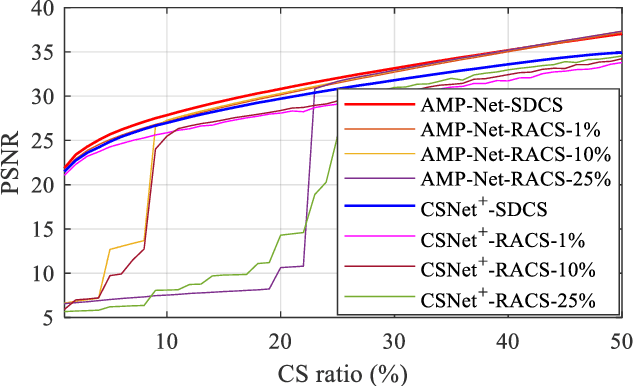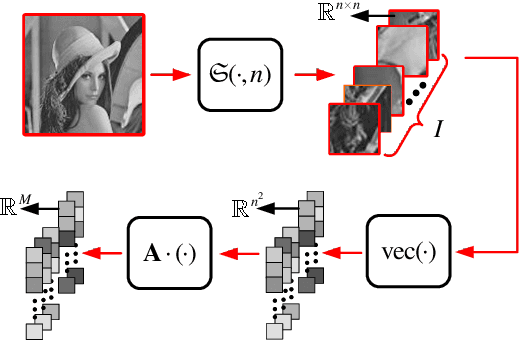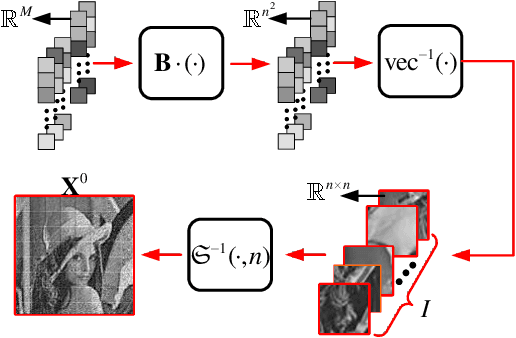Zhonghao Zhang
Scalable Deep Compressive Sensing
Jan 22, 2021



Abstract:Deep learning has been used to image compressive sensing (CS) for enhanced reconstruction performance. However, most existing deep learning methods train different models for different subsampling ratios, which brings additional hardware burden. In this paper, we develop a general framework named scalable deep compressive sensing (SDCS) for the scalable sampling and reconstruction (SSR) of all existing end-to-end-trained models. In the proposed way, images are measured and initialized linearly. Two sampling masks are introduced to flexibly control the subsampling ratios used in sampling and reconstruction, respectively. To make the reconstruction model adapt to any subsampling ratio, a training strategy dubbed scalable training is developed. In scalable training, the model is trained with the sampling matrix and the initialization matrix at various subsampling ratios by integrating different sampling matrix masks. Experimental results show that models with SDCS can achieve SSR without changing their structure while maintaining good performance, and SDCS outperforms other SSR methods.
AMP-Net: Denoising based Deep Unfolding for Compressive Image Sensing
Apr 21, 2020



Abstract:Most compressive sensing (CS) reconstruction methods can be divided into two categories, i.e. model based methods and classical deep network methods. By unfolding the iterative optimization algorithm for model based methods into networks, deep unfolding method has the good interpretation of model based methods and the high speed of classical deep network methods. In this paper, to solve the visual image CS problem, we propose a deep unfolding model dubbed AMP-Net. Rather than learning regularization terms, it is established by unfolding the iterative denoising process of the well-known approximate message passing algorithm. Furthermore, AMP-Net integrates deblocking modules in order to eliminate the blocking artifact that usually appears in CS of visual image. In addition, the sampling matrix is jointly trained with other network parameters to enhance the reconstruction performance. Experimental results show that the proposed AMP-Net has better reconstruction accuracy than other state-of-the-art methods with high reconstruction speed and a small number of network parameters.
 Add to Chrome
Add to Chrome Add to Firefox
Add to Firefox Add to Edge
Add to Edge